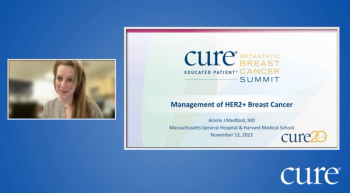
Watch Dr. Arielle J. Medford, from Dana-Farber Cancer Institute, discuss the management of HER2-positive disease during the CURE® Educated Patient® Metastatic Breast Cancer Summit.

Watch Dr. Arielle J. Medford, from Dana-Farber Cancer Institute, discuss the management of HER2-positive disease during the CURE® Educated Patient® Metastatic Breast Cancer Summit.
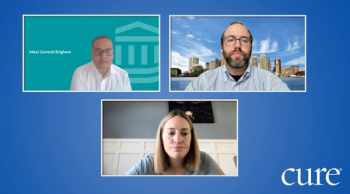
Watch Dr. Aditya Bardia, Dr. Seth A. Wander and Dr. Laura M. Spring answer questions about HR-positive disease during the CURE Educated Patient Metastatic Breast Cancer Summit.
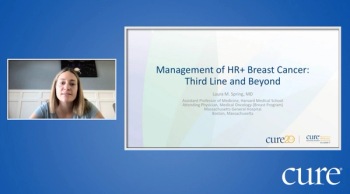
Watch Dr. Laura M. Spring, from Massachusetts General Hospital in Boston, discuss treatment in third line and beyond for hormone receptor-positive breast cancer, during the CURE® Educated Patient® Metastatic Breast Cancer Summit.
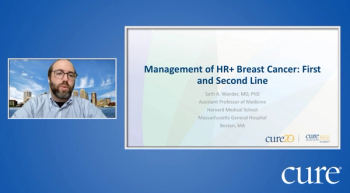
Watch Dr. Seth A. Wander, from Massachusetts General Hospital in Boston, discuss the first- and second-line treatment of hormone receptor-positive breast cancer, during the CURE® Educated Patient® Metastatic Breast Cancer Summit.
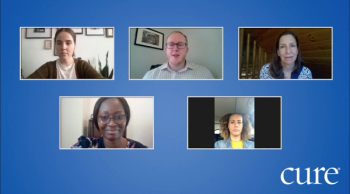
Watch Emily Huskey, Dr. Wendy Baer, Fabienne Ehivet and Lisa Weems answer questions about areas outside of treatment during the CURE Educated Patient Metastatic Breast Cancer Summit.
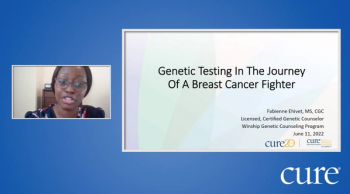
Watch Fabienne Ehivet, from Emory Saint Joseph’s Hospital, discuss genetic testing, during the CURE Educated Patient Metastatic Breast Cancer Summit.
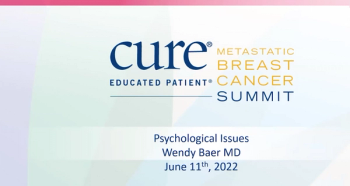
Watch Dr. Wendy Baer, from Winship Cancer Institute at Emory University, discuss psychosocial issues, during the CURE Educated Patient Metastatic Breast Cancer Summit.
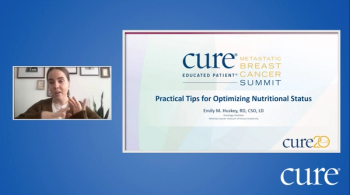
Watch Emily Huskey, from the Winship Cancer Institute of Emory University, discuss diet and exercise, during the CURE Educated Patient Metastatic Breast Cancer Summit.
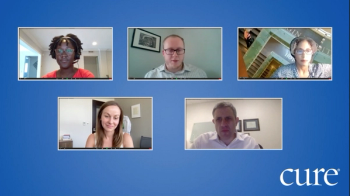
Watch Dr. Kimberly Curseen, Dr. Anna Bausum, Dr. Kevin Kalinsky and Alyncia Mason answer questions about additional care, during the CURE Educated Patient Metastatic Breast Cancer Summit.
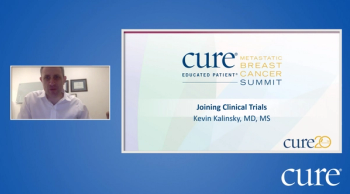
Watch Dr. Kevin Kalinsky, from Winship Cancer Institute of Emory University, discuss joining clinical trials, during the CURE Educated Patient Metastatic Breast Cancer Summit.
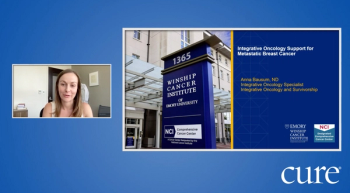
Watch Dr. Anna Bausum, Winship Cancer Institute at Emroy University, discuss alternative medicine, during the CURE Educated Patient Metastatic Breast Cancer Summit.
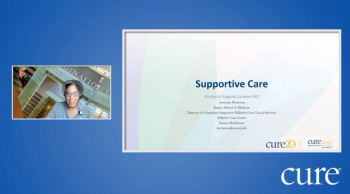
Watch Dr. Kimberly Curseen, from Winship Cancer Institute of Emory University, discuss supportive care, during the CURE Educated Patient Metastatic Breast Cancer Summit.
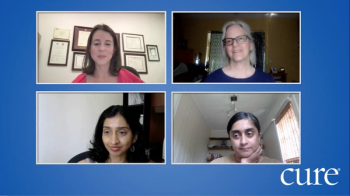
Watch Dr. Suchita Pakkala, Dr. Jane Meisel, Dr. Keerthi Gogineni and Kelly Shanahan discuss updates in disease management during the CURE Educated Patient Metastatic Breast Cancer Summit.
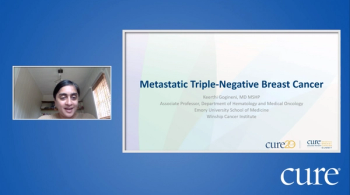
Watch Dr. Keerthi Gogineni, from Emory University School of Medicine, discuss the management of triple-negative disease, during the CURE Educated Patient Metastatic Breast Cancer Summit.
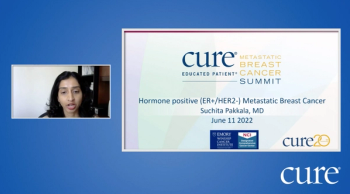
Watch Dr. Suchita Pakkala, from Emory University School of Medicine, discuss estrogen receptor-positive disease, during the CURE Educated Patient Metastatic Breast Cancer Summit.

Patients who understand their roles and responsibilities may better help their care teams understand what they may be at risk for in their cancer survivorship.

By understanding family history, an individual can better reveal their genetic breast cancer risk and whether or not they are a candidate for genetic testing.
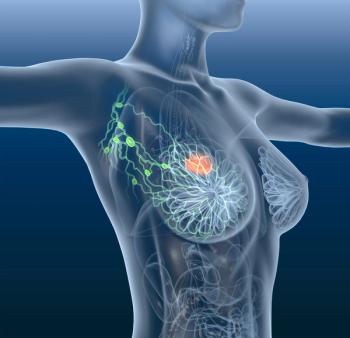
Being informed and educated may help patients with breast cancer make a treatment decision and feel less afraid.

An expert explains what treatment strategies are available for patients with metastatic breast cancer, how far research has come and why patients shouldn’t lose hope.

A breast surgeon discusses what patients and their caregivers should know before breast cancer surgery.

Navigating discussions around treatments for early-stage breast cancer may be difficult, but feeling comfortable with one’s cancer team and knowing about all the available options may help.
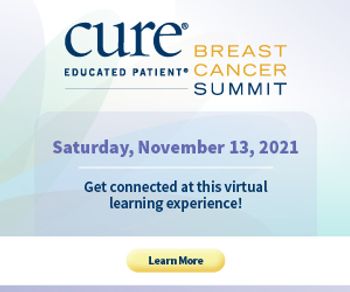
View the full CURE Educated Patient Breast Cancer Summit Outside of Therapy Session on demand.

View the full CURE Educated Patient Breast Cancer Summit Novel Therapies Session on demand.

View the full CURE Educated Patient Breast Cancer Summit Multi-Disciplinary Approaches to Early-Stage Breast Cancer Session on demand.

If you missed any part of CURE®’s Educated Patient® Breast Cancer Summit, take a look at this roundup of stories that highlight the expert insight and guidance that was shared throughout the day.

Increasing healthy eating habits and exercise is important in patients with breast cancer, according to an expert from Mass General Cancer Center.

An expert discusses the potential that several novel therapies hold in treating metastatic breast cancer, including PARP inhibitors, immunotherapy and antibody drug conjugates. Each therapy type has an FDA-approved option to potentially provide patients with better outcomes and quality of life.
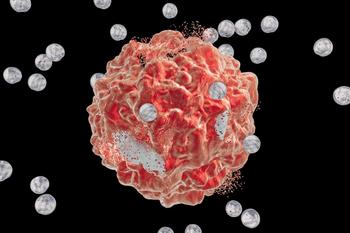
Triple-negative breast cancer, which is found in 15%-20% of invasive breast cancers, is a challenge when it comes to treatment, but thanks to new drug approvals and therapy regimens, the treatment landscape has progressed in recent years, according to an expert.

Targeted therapies that attack cancer in a more precise way than traditional chemotherapy are being used more often in the field of breast cancer, but the solution in utilizing them lies within the patient-oncologist relationship, according to an expert from the Massachusetts General Hospital Cancer Center.

Mindfulness practices have been associated with improved mental health outcomes in patients with cancer. Here, an expert shares tips on how patients can strengthen their “mindfulness muscle.”